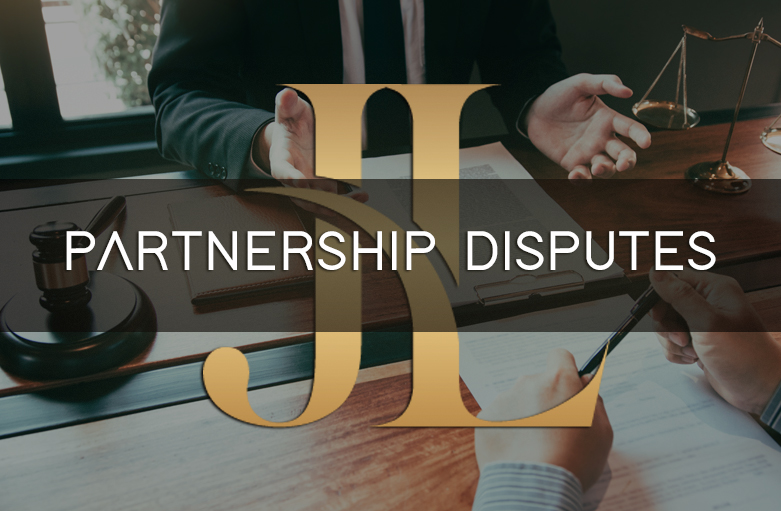
Partnership Disputes: Resolving Conflicts for Successful Collaboration
Partnerships can be highly beneficial for businesses, allowing multiple individuals or entities to pool their resources, skills, and expertise. However, as with any relationship, conflicts and disputes can arise in partnerships. In this article, we will explore the common causes of partnership disputes and provide strategies for resolving them effectively. By understanding the dynamics of partnership conflicts and implementing appropriate solutions, businesses can maintain harmonious relationships and foster long-term success.
Understanding Partnership Disputes
In a business partnership, a dispute refers to a disagreement or conflict between partners regarding various aspects of their collaboration. These disputes can arise from differences in opinions, goals, expectations, or a breakdown in communication. Resolving partnership disputes promptly and effectively is crucial to preserve the relationship and ensure the continued success of the venture.

Common Causes of Partnership Disputes
Divergent Vision and Goals: Partners may have conflicting ideas about the direction and goals of the business, leading to disputes over strategic decisions, growth plans, or market positioning.
Financial Matters: Disagreements regarding the allocation of profits, salaries, investments, or financial mismanagement can strain partnerships and create significant disputes.
Roles and Responsibilities: Confusion or disagreement about the roles, responsibilities, and decision-making authority of each partner can result in conflicts and hinder efficient operations.
Trust and Miscommunication: Lack of trust, inadequate communication, or misinterpretation of information can breed misunderstandings and escalate into serious disputes.
Personal Conflicts: When personal issues spill over into the partnership, conflicts arising from differing values, work ethics, or incompatible personalities can undermine collaboration.
Effective Communication: The Key to Conflict Resolution
Open and honest communication is essential in resolving partnership disputes. Here are some strategies to facilitate effective communication:
Active Listening: Give partners the opportunity to express their concerns, actively listen to their viewpoints, and acknowledge their emotions and perspectives.
Constructive Dialogue: Encourage respectful and constructive discussions where partners can share their ideas, concerns, and proposed solutions without fear of judgment or reprisal.
Clear and Transparent Communication: Ensure that information, decisions, and changes are communicated clearly and transparently to all partners to minimize misunderstandings.
Regular Meetings: Establish a regular meeting schedule to discuss progress, address concerns, and maintain open lines of communication.

Seeking Mediation and Arbitration
In cases where direct communication does not yield satisfactory results, seeking external assistance can be beneficial. Mediation and arbitration are two common methods of alternative dispute resolution:
Mediation: Involves a neutral third party facilitating discussions between partners to help them reach a mutually acceptable resolution. Mediators do not make decisions but guide the process.
Arbitration: In this process, a neutral arbitrator assesses the dispute and makes a binding decision, which the partners must abide by. It provides a more formal approach to dispute resolution.
The Role of Legal Professionals
When partnership disputes become complex or escalate, involving legal professionals with expertise in business and partnership law is advisable. They can provide guidance on legal rights, obligations, and potential courses of action. Legal professionals can also assist in drafting or reviewing partnership agreements to ensure clarity and enforceability.

Maintaining Documentation and Clear Agreements
Clear and comprehensive documentation is vital for preventing and resolving partnership disputes. Partners should establish formal agreements that outline their roles, responsibilities, profit-sharing mechanisms, decision-making processes, dispute resolution methods, and exit strategies. These agreements provide a reference point during conflicts and help avoid ambiguities.
Assessing Financial Implications
Financial matters are often at the heart of partnership disputes. It is crucial to objectively assess the financial implications of potential resolutions. Partners should consider factors such as profit distribution, capital contributions, liabilities, and tax implications while seeking equitable and fair outcomes.
Reevaluating the Partnership Structure
In some cases, the underlying partnership structure may contribute to conflicts. Partners should evaluate whether the current structure aligns with their goals and values. Modifying the ownership percentages, decision-making processes, or introducing additional partners can help alleviate disputes and foster a more harmonious environment.
Dissolution and Exit Strategies
If partnership disputes become irreconcilable, dissolution may be the most suitable option. Partners should have well-defined exit strategies in place to ensure an orderly and fair separation. These strategies may include mechanisms for distributing assets, settling outstanding debts, and transitioning clients or customers.

Learning from Disputes: Preventive Measures for Future Partnerships
Partnership disputes can offer valuable lessons for future collaborations. By reflecting on the causes and consequences of past disputes, partners can implement preventive measures, including:
Comprehensive Due Diligence: Conduct thorough research and due diligence before entering into partnerships to assess compatibility, shared values, and goals.
Clear Expectations: Establish clear expectations, roles, and responsibilities from the outset, ensuring alignment among partners.
Regular Review and Communication: Continuously assess the partnership’s progress, address emerging issues promptly, and maintain open lines of communication to prevent conflicts from escalating.
Conflict Resolution Mechanisms: Establish robust conflict resolution mechanisms within partnership agreements to provide a structured framework for addressing disputes.

Professional Mediation: Consider engaging professional mediators periodically to facilitate open discussions, resolve conflicts, and foster a healthy partnership culture.
Conclusion
Partnership disputes are a common challenge faced by businesses. However, by proactively addressing conflicts through effective communication, seeking mediation or arbitration when necessary, involving legal professionals when appropriate, and implementing preventive measures, partners can navigate and resolve disputes successfully. By prioritizing collaboration, transparency, and shared goals, partnerships can thrive and contribute to long-term business success.
FAQs
Implementing clear expectations, maintaining open communication, and addressing emerging issues promptly can help prevent partnership disputes.
Legal professionals should be involved when disputes become complex, escalate, or require expertise in business and partnership law.
Mediation offers a less formal, cost-effective, and time-efficient approach to resolving partnership disputes while allowing partners to retain control over the outcome.
Yes, partnership disputes can often be resolved through effective communication, mediation, or other alternative dispute resolution methods, allowing the partnership to continue.
Clear and comprehensive documentation, including partnership agreements, serves as a reference point during disputes and helps prevent misunderstandings or ambiguities.
